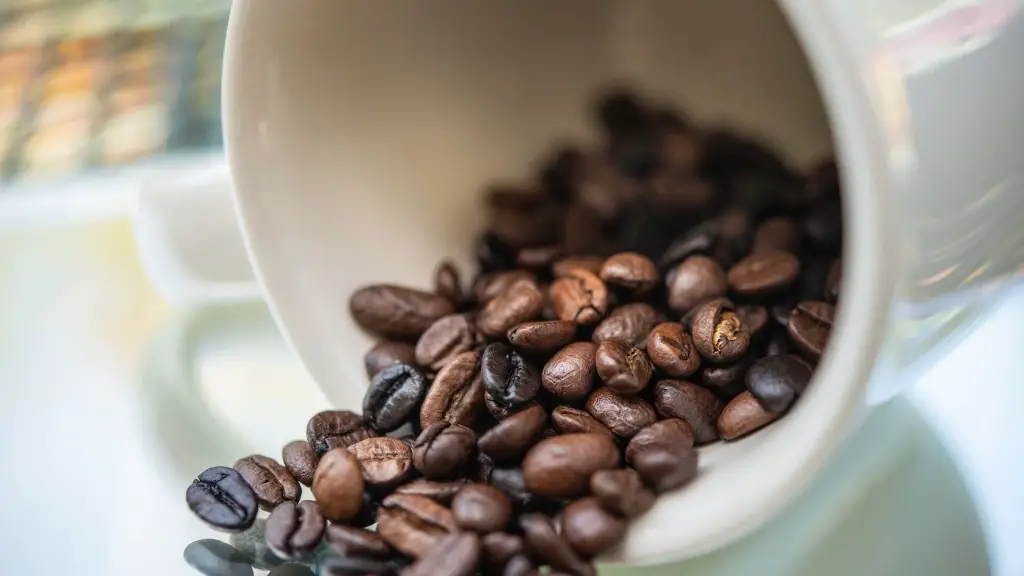Does drinking too much coffee make you gain weight?
Many coffee lovers have their loyal cup of coffee every morning just to wake up. Drinking coffee has become an essential part of many people’s daily routine. Recently, high volumes of coffee have been linked to weight gain and going beyond regular intake can have harmful effects on one’s health.
Coffee contains caffeine which is a stimulant that can affect the body and mind. Drinks with sugar and cream on top of this can add to the caloric intake, leading to weight gain if the person does not watch their sugar intake.
But is this only a myth or is there a tangible relationship between coffee and weight gain? According to Dr. Robert Sutton, professor of nutrition and dietetics in the College of Public Health and Human Sciences at Oregon State University, it depends on how a person consumes coffee.
He says, “Coffee itself, without added sugar or cream, is mostly a very low-calorie beverage in comparison to sodas or fruit juices. Coffee with added cream or sugar, however, can have moderate to high levels of calories depending on the quantity of additive used.”
In order to keep your weight in check, it is recommended to limit your cream and sugar intake. Without the extra calories, you should not be worried about weight gain. Great news for all the coffee enthusiasts out there.
More good news is that drinking coffee might even be beneficial for weight loss. Coffee increases your metabolic rate and increases fat oxidation. In addition, it helps control your hunger by regulating ghrelin, the hormone your body sends when it is hungry. All this can lead to cutting calories.
External Factors
Other than consuming coffee with cream and sugar, external factors such as environment play a considerable role in the relationship between coffee and weight gain. Dr. Kaci Likins, a nutrition specialist at Southwest Tech Health and Wellness Center, suggests monitoring your environment when drinking coffee regularly. She suggests avoiding running errands while sipping on coffee because it increases the chances of making poor food choices. The more time you spend sipping on your coffee, the greater the chances are of running errands on an empty stomach and making an impulse buy.
Dr. Likins also emphasizes the importance of monitoring the environmental factors to ensure that regular coffee consumption does not lead to weight gain. She states, “When you are drinking coffee, or beverages with sugar and cream, always consider what type of environment you are in”. She believes that awareness of ones environment is the most important factor when it comes to the consumption of beverages like coffee.
Chronically consuming drinks high in sugar can lead to weight gain due to an increase in caloric intake, as well as an increase in the risk of disease. Moreover, consuming drinks high in sugar can alter the microbiome of the gut, which has also been linked to weight gain. The microbiome of the gut determines if you are going to gain or lose weight, depending on the type of bacteria present in the gut.
Dietary Habits
It is important to consider the environment in which you are drinking coffee and be aware of any dietary habits you have developed. According to Dr. John Wilson, a nutritionist at the Body Warrior Clinic, “If you are drinking coffee every day for breakfast, then it is important to be aware that you are supplementing your diet with calories. It is easy to forget this when you are drinking coffee and you could be making poor dietary choices as a result.”
He goes on to say “It is important to maintain a balanced diet by eating healthy snacks throughout the day to compensate for the calories you are consuming in coffee.” It is not just coffee which can contain hidden calories, it is important to be aware of all sources of calories including juices, smoothies or sodas, and to make sure to maintain a balanced diet.
Dr. Wilson also suggests an active lifestyle as an effective way to control your weight. He believes that “Exercising regularly will help to balance the calories in and out, whether they are coming from food or coffee, so that you maintain a healthy weight.”
Caffeine Sensitivity
It is important to note that not everyone is the same and people react differently to coffee due to their individual physiology. Dr. David Smith, a specialist in nutritional medicine suggests that “Some people may be sensitive to caffeine, leading to weight gain even when consumed in moderation as it increases cortisol levels. Others may not be affected by it at all, meaning that they can drink as much coffee as they like without gaining weight.”
He explains that “some people may be more sensitive to the stimulant effects of coffee, which can easily stimulate appetite, leading to the consumption of unhealthy foods”. He suggests that for people who are sensitive to caffeine, coffee should be consumed in moderation and people should opt for coffee alternatives, such as herbal teas, when possible.
This is especially important for those who have a genetic predisposition to obesity. For example, Dr. Smith conducted a study which showed that people who have the obesity-causing gene FTO are more sensitive to the effects of caffeine and are more likely to gain weight when consuming coffee regularly.
Fat Loss
Besides regulating ghrelin levels, coffee has another positive effect on those looking to lose body fat. Dr. Sarah Smith, an obesity specialist at the University of Massachusetts Medical School highlights the importance of the antioxidant effects of coffee. She explains how the antioxidants from drinking coffee can help to fight off oxidative stress, which has been linked to obesity.
Also, research has shown that there is a connection between consuming coffee and fat loss. According to Dr. Smith, “Studies have shown that caffeine consumption can lead to an increase in metabolic rate and a decrease in body fat. This means that caffeine consumption can lead to both fat loss and a reduction in bodyweight.”
Dr. Smith goes on to say that “Caffeine consumption can also lead to an increase in fat oxidation in the body. This means that the body is able to burn more fat and convert it into energy, resulting in a decrease in body fat.”
These effects of caffeine consumption can be seen in those who consume regular amounts of caffeine. However, these effects may be greater for those who are caffeine-sensitive, as the stimulant effects may lead to an even greater increase in metabolic rate and fat oxidation.
Nutritional Profile
In order to make sure that regular consumption of coffee does not affect your weight, it is important to look at the nutritional profile of the beverage. According to recent research, regular consumption of black coffee can actually have a positive effect on one’s health. A study by the University of Illinois at Chicago found that regular consumption of black coffee can lower the risk of several diseases, including diabetes, stroke and heart disease.
These results may be due to the antioxidant and anti-inflammatory properties of coffee. Moreover, black coffee is also a great source of essential vitamins and minerals. It is high in B vitamins, magnesium, potassium and manganese, all of which are essential for good health.
In conclusion, it is important to be aware of the possible dangers of consuming too much coffee. While regular consumption of black coffee can be beneficial for your health, it is important to limit your intake of sugary beverages, including coffee. It is also important to maintain a balanced diet and regular exercise in order to keep your weight in check.
Manufactured Alternatives
Another option for coffee drinkers is to switch to a coffee alternative such as lattes and cappuccinos. Manufactured coffee substitutes are often lower in calories than regular coffee and come in a variety of flavors. Some coffee alternatives contain added milk, so it is important to be mindful of the calories when choosing a manufactured coffee alternative.
It is also important to be aware of the ingredients in the coffee alternative. Many coffee manufacturers will add sugar or artificial sweeteners to their products, so it is important to be aware of the nutritional content of the product and to avoid high-sugar varieties. Caffeine-free coffee is also available, and can be a great option for those looking to reduce their caffeine intake.
Another option for those looking to reduce their caffeine intake is to switch to herbal teas. Although herbal teas are naturally caffeine-free, it is important to be aware of the sugar content. Some manufacturers will add sugar or sweeteners to their herbal teas in order to increase their appeal. Thus, it is important to read the nutritional information on the label before making a purchase.
Moderation
Ultimately, moderation is key when it comes to drinking coffee. Drinking too much coffee can lead to weight gain and other negative health effects, while drinking in moderation can be beneficial. It is important to be aware of the nutritional content of the beverage and to drink in moderation in order to maintain a healthy weight.
For those looking to reduce their caffeine intake, switching to a caffeine-free beverage or herbal tea can be a great alternative. It is also important to maintain a healthy and balanced diet, as well as regular exercise, in order to maintain a healthy weight.
Intermittent Fasting
One way of controlling your weight while drinking coffee is to practice intermittent fasting. Research has shown that practitioners of intermittent fasting may be able to reduce their risk of obesity and other health issues related to over-eating. Intermittent fasting can also help to increase energy levels and can make it easier for individuals to control their caloric intake.
Intermittent fasting is when an individual fasts for a certain period of time and then eats within an 8-hour window. The 8-hour window could be any 8 hours of the day, but most people prefer to fast for 16 hours and then eat in an 8-hour window. This type of fasting can be done a few times a week or every day, depending on the individual.
Intermittent fasting can be a great way to control your weight while still enjoying coffee, as it can help to control your caloric intake and regulate your ghrelin levels. It can also help to reduce the number of unnecessary calories and fats consumed throughout the day.
Metabolism Rate
Coffee can also boost your metabolism rate, leading to greater fat burning capabilities. Studies have found that drinking coffee can increase the body’s ability to burn fat by up to 10%, leading to greater fat loss. Coffee can also increase your energy levels, making it easier for you to exercise and maintain a healthy lifestyle.
When trying to lose weight, it is important to focus on increasing your metabolism rate. This can be done with the help of coffee, as caffeine can help to increase your metabolic rate and fat burning capabilities. It is important to note, however, that the effects of caffeine can vary from person to person, so it is important to find the right amount of caffeine that works for you.
If you are looking to increase your metabolism rate, it is important to focus on making healthy lifestyle changes. Eating a balanced diet and exercising regularly can also help increase your metabolism rate and can help to maintain a healthy weight.
Conclusion
In conclusion, it is important to note that there is no definitive answer to the question, “Does drinking too much coffee make you gain weight?” While it is important to be aware of the effects of drinking too much coffee on your health, moderate consumption of coffee can actually be beneficial for your health.
It is important to be aware of the factors that can lead to weight gain, such as dietary habits, environment, and caffeine sensitivity. It is also important to be aware of the nutritional profile of coffee and to choose healthier alternatives, such as herbal teas, when possible. Furthermore, practising intermittent fasting and increasing your metabolism rate can also be beneficial for reducing your risk of obesity.





